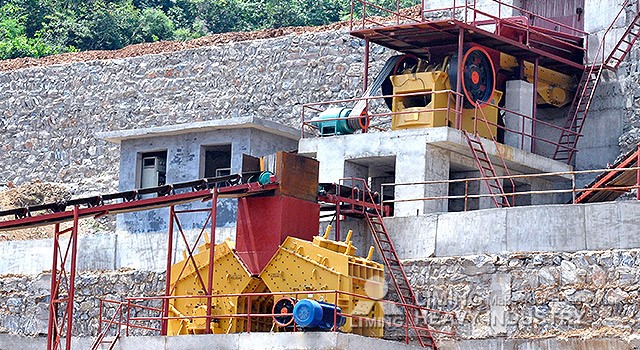Challenges and Solutions of Using Impact Crushers for Crushing High-Moisture Clay in Indonesia
Indonesia, rich in clay minerals and other sedimentary deposits, presents unique challenges in material processing. Among them, the crushing of high-moisture clay—a material known for its stickiness and plasticity—has long been a bottleneck in mining and construction industries. While impact crushers are widely used for their high crushing efficiency and uniform output, they often struggle when handling wet, adhesive materials like Indonesian clay.
This article explores the core problems faced by impact crushers in such conditions and presents practical solutions to overcome them.
Why Impact Crushers Struggle with High-Moisture Clay
While impact crushers are ideal for medium-hard stones, sticky and moist clay introduces several operational difficulties:
🔴 Material build-up on rotor and liners
🔴 Clogging at the discharge outlet
🔴 Reduced throughput and uneven output size
🔴 Increased wear and unplanned downtime
🔴 Difficult feeding due to clumping of wet clay
These issues not only affect efficiency but can also cause severe mechanical damage if not addressed properly.

Common Applications in Indonesia
In regions like Kalimantan, Sumatra, and Java, industries often encounter:
- Lateritic clay in bauxite mining
- Clay-mixed overburden in coal stripping
- Clay-rich limestone used for cement production
- Red clay in ceramic and brick production
All of these require reliable crushing solutions that can handle wet and cohesive feed.
Solutions to Improve Impact Crusher Performance in Wet Clay
✅ 1. Pre-Screening and Material Separation
Installing a vibrating grizzly feeder or rotary drum screen ahead of the crusher helps separate fine clay and moisture before material enters the crushing chamber.
✅ 2. Use of Anti-Clogging Impact Crusher Design
Manufacturers now offer impact crushers with wider rotor spacing, heated liners, or self-cleaning mechanisms to reduce build-up of sticky materials.
✅ 3. Frequent Cleaning Intervals and Spray Systems
Implementing a water mist spray system inside the hopper or chute can reduce material adhesion. Scheduled cleaning also prevents rotor imbalance and wear.
✅ 4. Optimized Rotor Speed and Blow Bar Selection
Lower rotor speeds can reduce material compaction, while chrome-moly or ceramic blow bars resist abrasion from mineral-rich clay.
✅ 5. Material Mixing or Drying
In some cases, mixing the wet clay with drier aggregate or pre-drying it with hot air blowers improves overall workability and flow into the crusher.
Case Study: Clay Crushing in Central Java
A mining site in Central Java processing laterite clay initially suffered frequent blockages using a standard PF1210 impact crusher. After consulting with Liming Heavy Industry, they adopted:
- A vibrating grizzly feeder
- A modified PFV-1315 impact crusher with wider discharge gap
- Regular rotor maintenance protocol
As a result, daily output increased by 40%, and unplanned shutdowns dropped by 70%.
Technical Specifications of Recommended Impact Crusher (PFV-1315)
| Parameter | Value |
|---|---|
| Max Feeding Size | ≤500 mm |
| Capacity | 120–300 TPH |
| Rotor Diameter | 1300 mm |
| Power Requirement | 160–200 kW |
| Application | Wet clay, limestone, mix |
Why Choose Liming Heavy Industry?
Localized Support in Indonesia
Custom Crusher Designs for Sticky Materials
Spare Parts Availability and On-Site Service
Engineering Consultation for Complex Materials
Proven Solutions for Over 30+ Clay Crushing Projects
Conclusion
Crushing high-moisture clay in Indonesia using traditional impact crushers can be extremely challenging—but not impossible. With the right design modifications, material handling strategies, and technical support, impact crushers can effectively process even the stickiest of clays, ensuring efficient operation and reliable output.
Contact Us Today
Facing problems with sticky clay and crusher blockages?
Liming Heavy Industry offers custom-engineered impact crushers tailored to Indonesia’s mining and clay processing needs.
- > Advantages and Disadvantages of Cone Crushers: A Comprehensive Overview
- > Jaw Crusher Performance in Volcanic Rock Processing: A Robust and Efficient Solution
- > Cost-Effective Jaw Crusher Equipment for Sandstone Crushing in Pakistan
- > The Role of PF Impact Crushers in Kazakhstan’s Mining Industry
- > Cone Crusher or Impact Crusher for Secondary Crushing in Mining: Which is More Cost-Effective?
- > Vibrating Screens for Crushed Stone and Gravel Processing: Equipment for Crushing and Screening Aggregates
- > Choosing the Best Jaw Crusher for Your Indonesia Limestone Crushing Project
- > The Role of Concrete Impact Crushers in Cement Production Lines
Hot Product


Online




Message
